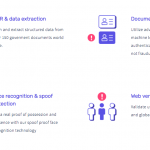How Smartphones Helped Shape A New Generation Of Globally Minded “Next-Pats”
A new study reveals that Americans have a more global outlook than Europeans, partly because they are more connected through technology.
Americans have a reputation for being insular and unadventurous when it comes to learning about the rest of the world. This is partly justified: Only 38% of Americans even have passports, and a mere 3.5% of them travel overseas every year. But according to a new study, Americans might actually be more cosmopolitan than we think.
This was the main finding of a study surveying 2,500 people from Europe and the U.S. between ages 18 and 65. The study incorporated the expertise of a panel of eight sociologists from around the world including Eric Klinenberg of NYU (also the coauthor of Modern Romance with Aziz Ansari), Dale Southerton of the University of Manchester, and Michel Maffesoli of Paris Descartes University. The study was conducted by U.K.-based international money transfer company Transferwise.
Global Citizens Are Not Just Elite Expats
People who live and work overseas are often described as “expats,” and typically feel rooted in their national identities while absorbing the culture of their adopted countries. “In the past, these were people who tended to come from wealthier backgrounds and had a certain job or financial status,” says Matt Flanders, research consultant at TransferWise. “This is changing.”
The researchers found that there is a new mind-set emerging among people who use technology to lead more global, connected lives. It is no longer just the elites who are moving abroad to enjoy an international lifestyle. A bigger swath of the population is now able to choose to move beyond national boundaries. In this study, the researchers coined a new term, “next-pat” to describe a relatively new category of people who are likely to travel for work, but who are characterized by outlooks, attitudes, and behaviors that are more fluid and transnational than expats of the past.
Here are some “next-pat” traits:
- They believe you don’t have to come from the same country as someone else to have a lot in common.
- They are more likely to live and work abroad because they believe that technology allows them to remain connected to their home, their friends, and their family. They do not believe that you will lose your national identity by moving overseas.
- They are more likely to get involved in things happening in their local area, wherever they might be.
- They tend to be more entrepreneurial and ready to embrace risk. They are twice as likely to have started a business with international customers and have taken a holiday off the beaten track.
- They care equally about global and local issues: 40% feel strongly about poverty in less developed countries, and 51% feel strongly about homelessness in their own country.
Americans Are More Globally Minded than Europeans
According to the quantitative portion of the study, this mind-set has been growing in the U.S.: While only 9% of Americans would have been classified as next-pats in 2010, today 36% of them have these traits. This is higher than European countries. In the U.K., 25% of people would be classified as next-pats, while 19% of the French and 18% of Germans have this outlook. The researchers theorize that Americans have been more eager to adopt social technologies that have made it easy for them to interact with people outside their immediate community. This is partly because many of these apps were built in the U.S. and first marketed to American consumers.
“Technology is a big driver of this change insofar as it has substantially reduced the cost of connecting to people at a great distance,” Klinenberg tells Fast Company. “It’s only in the last few years that people have been able to connect through apps like Skype, Facetime, or Whatsapp that bring the cost of communication down to virtually nothing, so long as you have an Internet connection.”
Technology Facilitates Real-World Interaction
Klinenberg, who has researched online dating extensively, points out that these technologies are able to help people forge relationships of all kinds, including connecting with coworkers and colleagues who work in other parts of the world. “As a sociologist, I don’t for a second believe that a digital conversation is the same as a face-to-face one, but it’s a pretty amazing substitute,” Klinenberg says.
There is now research showing that, contrary to popular belief, people who are heavy users of social media are also more likely to have face-to-face interactions as well. In other words, technology is not a substitute but a facilitator of human interaction, and it can promote real bonds between people across the world. “Now, because so much of social and professional life takes place online and through social media, the risk people have is being isolated if they are not on these online spaces,” Klinenberg says. “That’s a real shift. We used to worry that people who spent too much time using technology were pulling themselves out of the real social world.”
The study projected that across all countries, this new global mentality is likely to rise over the next five years, but that the U.S. is still likely to remain ahead in terms of this cosmopolitan outlook. “What we found is that this next-pat outlook is connected to being entrepreneurial and risk taking, which fits very well into the American mind-set, which is why it has spread so quickly,” Flanders says. “When the study looked at France and Germany, in particular, people there were much less willing to embrace these new ideas quickly.”
Fast Company , Read Full Story
(70)














